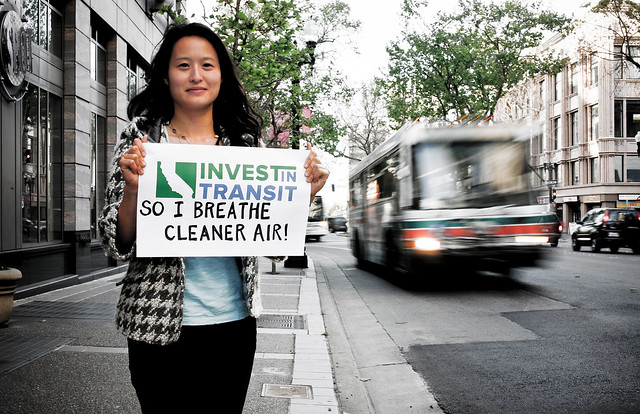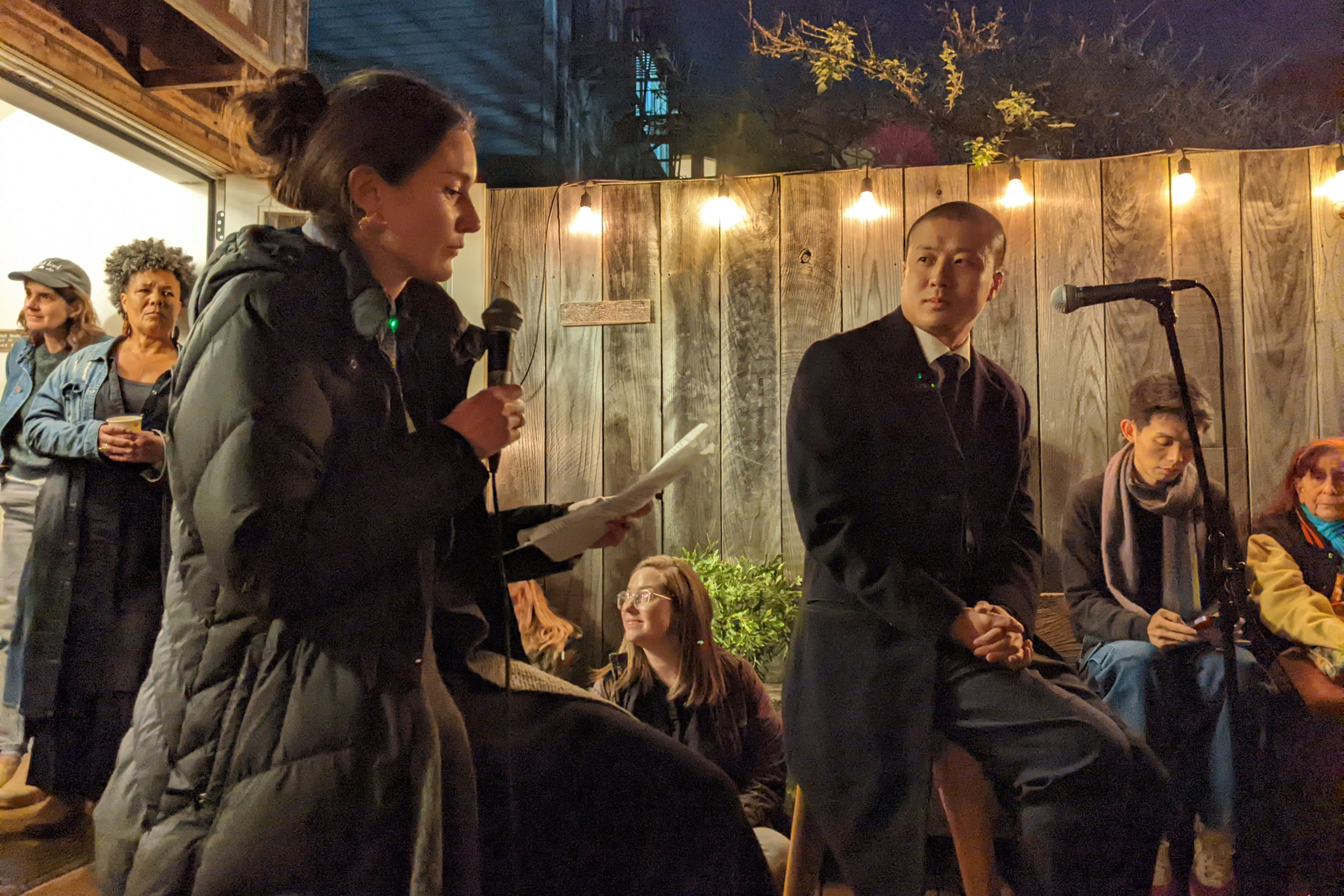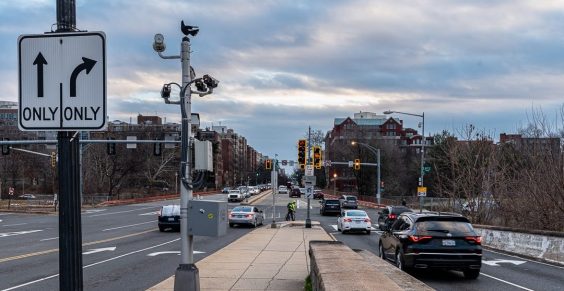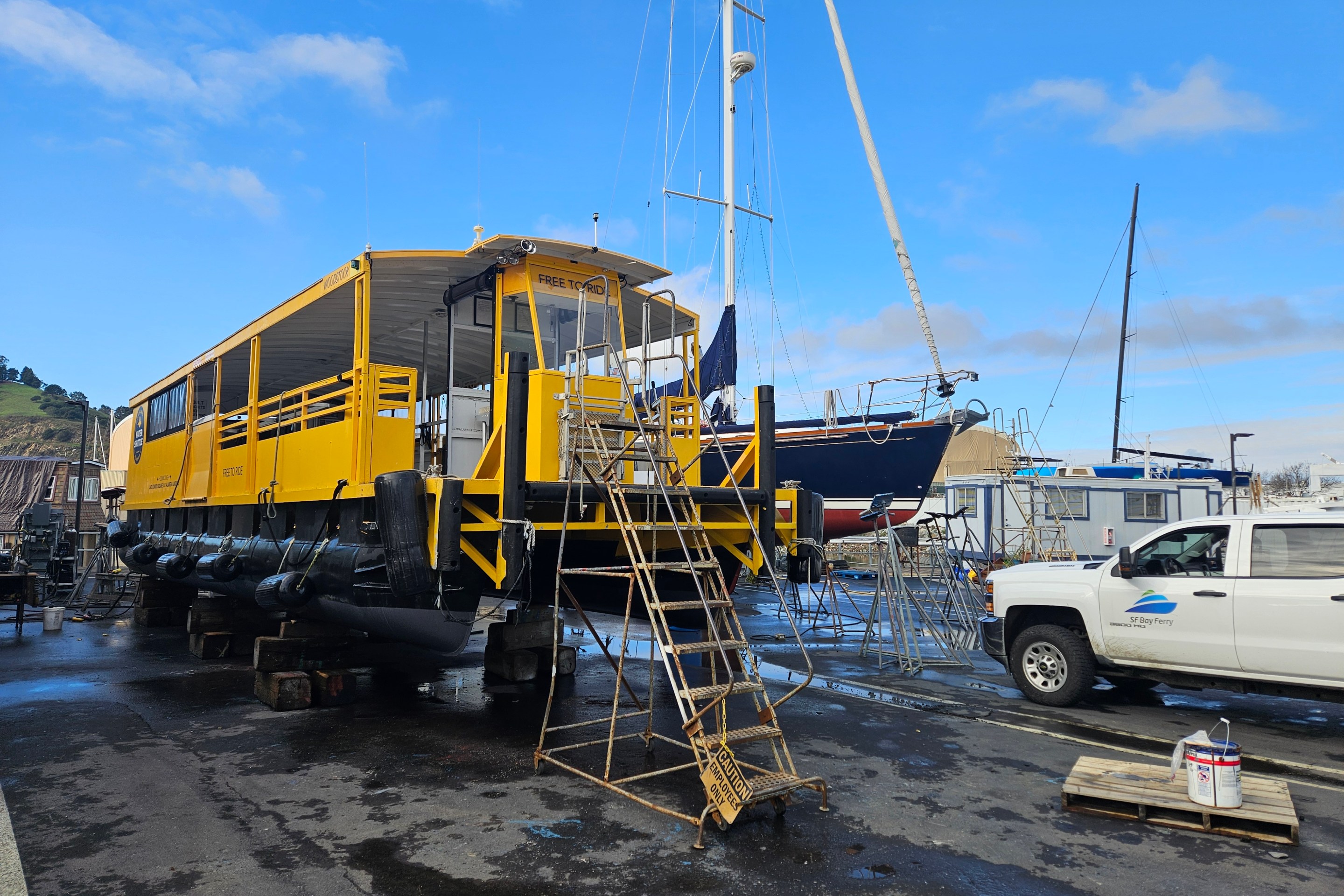Members of a broad coalition hailing from throughout California are headed to Sacramento next week to push policymakers to save transit funding and enact sustainable transportation planning reforms.
The Oakland-based transit advocacy group TransForm has amassed about 150 advocates to descend on the capitol for its two-day Transportation Choices Summit, the first known event of its kind, where they will meet with state representatives and urge them to prioritize walking, bicycling, and transit.
TransForm State Policy Director Graham Brownstein said the action came out of the organization's Invest in Transit campaign, launched last year to address the "very, very serious crisis" facing transit systems in California. The state has made dramatic funding cuts totaling more than $4 billion over the last decade, and TransForm recognized the immediate need for "creative policy reforms that will stabilize, and then grow transit funding in California," said Brownstein.
The cornerstone of the campaign is a push to ensure that a major portion of the revenue from California's nascent cap-and-trade program will be dedicated to transit operations and affordable housing projects located near transit.
The cap-and-trade revenue could go a long way toward restoring the damage done to transit funding under the Schwarzenegger administration. By selling emissions permits, Governor Jerry Brown's administration anticipates the cap-and-trade program will generate $1 billion in the 2012-2013 budget and $10 billion annually by 2020, according to TransForm [PDF].
Brownstein said transit agencies need all the help they can get to avert a much deeper statewide crisis.
"Piecemeal, at this point, isn't going to cut it," he said. "We're looking at just billions of dollars that are needed really pretty rapidly, or else you run into a situation where some of these systems that have not had proper maintenance and rehab for years start to really not function, and it becomes much more expensive, and it's not just a repair, but a replacement kind of an issue."
TransForm's proposal is targeted to help the state meet its air quality goals, particularly for disadvantaged communities, as mandated by AB 32, passed by the state legislature in 2006. The goal, said Brownstein, is to combine "the investments in transit infrastructure and operations with transit-oriented development in the right places so that you're maximizing the drop in people driving their cars, maximizing the increase in the ability of people to take transit, walk, and bike, and therefore you're maximizing the greenhouse gas reductions, which cap-and-trade is all about, ultimately."
He also pointed out that investing in transit options benefits low-income communities the most. "You're maximizing the benefits that accrue to people in this state who are suffering the most because of our over-reliance on cars. They're suffering because of the hit to their pocketbook, they're suffering because if they're low-income they're much more likely to live next to a freeway or near a port or other facility where lots of polluting motor vehicles are located."
The coalition will also push for reforms in how the state plans and funds transportation projects, "all of which aim to either increase funding for transit, bike, and pedestrian facilities, consider health and equity impacts as they're making transportation planning decisions, create some new tools for local governments to have financing to support needed infrastructure and housing investments," said Brownstein.
The coalition amassed by TransForm has grown to represent "not just the usual do-gooders," he said, but also local governments and transit agencies, business and labor, affordable housing proponents, and disability advocates. The campaign coalesced to "stitch these interests together."
"This has become much bigger than about transit and housing," said Brownstein. "It's now really about integration of the various modes of transportation -- transit, bike, ped, and cars -- and the ways in which we coordinate, or fail to coordinate, transportation and land-use planning to maximize the benefits of these investments."
The Transportation Choices Summit will take place in Sacramento next Tuesday and Wednesday, May 1 and 2. Registration for the event is still open, and you can also sign a petition to show your support.





